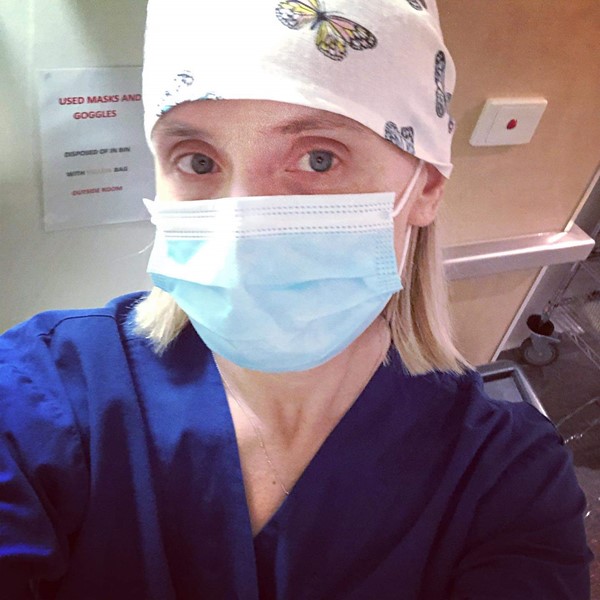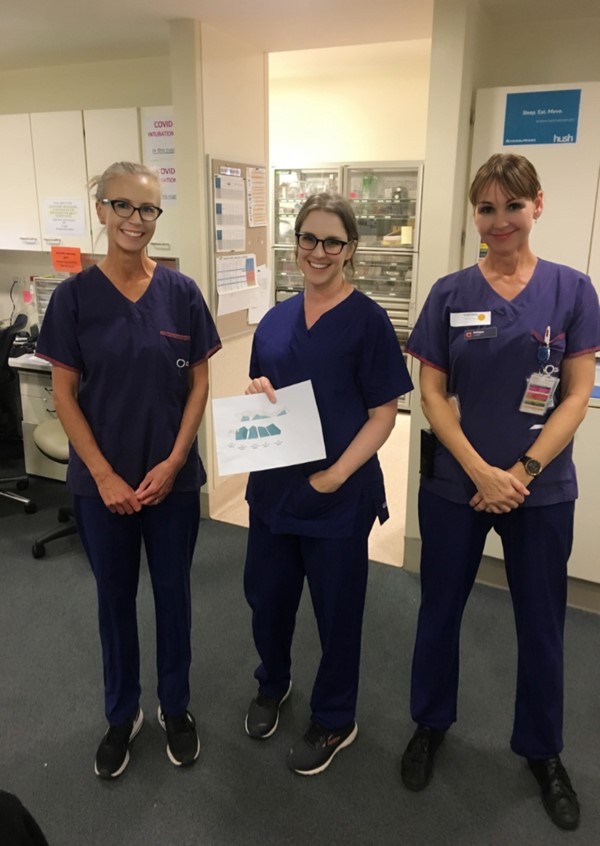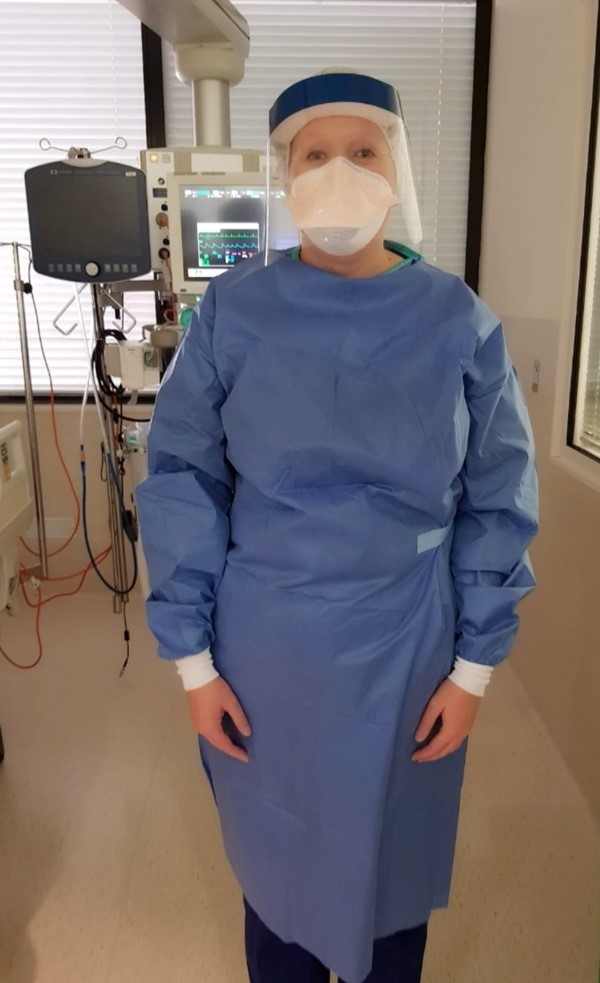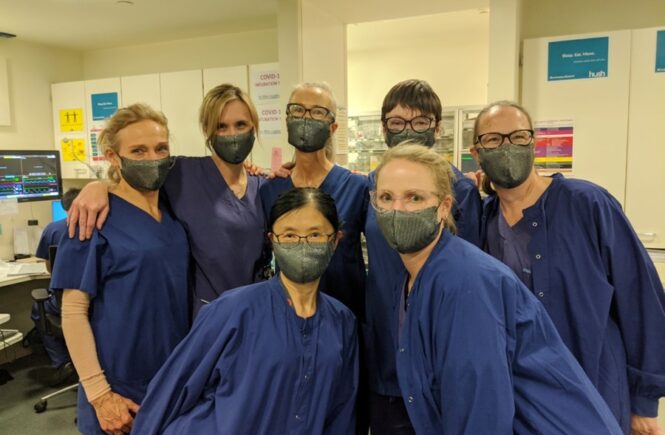International Nurses Day is celebrated around the globe each year on May 12th. It’s the date we remember the world’s most influential nurse Florence Nightingale and celebrate her birthday.
Nightingale to cut a long story short transformed the nursing profession in 1860. Her ideas still today have influenced modern nursing practises from hospital building and ward designs, infection control, ventilation and her help in founding the International Red Cross.
Today in Melbourne we celebrate our nurses and front-liners who are an essential part of our healthcare system. Today, I pay a personal tribute to some of our Melbourne Intensive Care staff and their unique skills in which they require to support the most critical and life-threatening conditions such as COVID – 19.
Melbourne Intensive Care Nurses share why they chose nursing as a career and the current situation with the Coronavirus global pandemic.
Melbourne ICU Nurse – Hui Li
Why did you choose to become an ICU Nurse? Hui says, “I chose to become an ICU nurse because I believe ICU Nursing is a much more challenging place to work.
How has COVID 19 impacted your work in the ICU? Hui says, looking after COVID-19 patients can be very stressful as I don’t want to bring the virus back home and this is the same for my colleagues. However, when I looked after COVID patients, my care and my responsibilities tell me that it’s nothing different than looking after other patients. It’s very rewarding to see they are getting better and were discharged from ICU.”

Melbourne ICU Nurse – Lil Ross
Why did you choose to become an ICU Nurse? Lil says, “I chose to be an ICU nurse because I wanted to continue to learn and use my critical thinking skills. I also wanted to challenge myself. I was working on the wards in oncology and I sensed that I would burn out and felt that my skills weren’t developing. So, I looked for a new challenge!!
How has COVID 19 impacted your work in the ICU? Lil says, like others, it’s the stress that you are going to bring the virus home. Especially when my son got sick, I had the worry around getting him tested and would I be safe to go back to work. I know there is a lot of praise for nurses with the current COVID 19 pandemic. But at the end of the day, I feel I am only doing my job! It is great to see us putting all our training to use and see the good outcomes we can achieve for our patients with COVID. I think the difficult part is being able to communicate with outpatients and loved ones through all the PPE. It can take some of the intimacy and compassion out of it. Especially when the patient is palliative and on precautions.”

Melbourne ICU Nurse – Lisa Dougherty
Why did you choose to become an ICU Nurse? Lisa says, “I did an ICU rotation as a graduate nurse and watched these amazing ICU nurses receive back a CAGS (Coronary Artery Bypass Surgery) patient. I knew then and there that I wanted to be able to do that too.
I found ICU nursing to be more autonomous in the way we manage and care for our patients. It’s bloody hard work to become an ICU nurse! Years of clinical and theoretical training. However, I believe we come out the other side with fabulous assessment skills that make us great clinicians.
I think this makes us more respected by our various colleague’s nurses, doctors, physios, etc…..”
How has COVID 19 impacted your work in the ICU? Lisa says, “Initially I think there was a lot of fear felt about COVID 19. We didn’t know how and to what degree it would affect Australia, and more importantly the effects it would have on Intensive care units across the country. I think that we were lucky to have enough time to “plan”. Our unit more than doubled in a short time, and there were training sessions daily regarding COVID 19. Staff were re-deployed from other departments to ICU, including myself. I haven’t worked clinically in ICU for many years, and at first, found it a little daunting. But as they say “it’s like riding a bike” you never really forget!!
I think the staff including myself are more confident about treating this COVID 19 patient demographic and this will only continue to grow over time.
I love the family I work with; I always know someone has my back. (even without asking).”
As nurses around the globe continue to fight the Covid – 19 pandemic it also comes at great sacrifice not only to themselves but also to their families. Many front liners choose to sleep in a different room to their partner and some even self-isolate and choose to stay elsewhere.

Melbourne Associate Nurse Unit Manager – Alison Johnson
Why did you choose to become an ICU Nurse? Alison says, “I chose to become an ICU nurse as I was getting a bit bored in the wards & needed a mental challenge. I love the autonomy that being a Critical Care Nurse offers and it would be impossible for me to work in any other Nursing environment now. I also feel that you’re really part of a team when you work in ICU: nurses, doctors, PCA’s and receptionists! It’s a nice feeling. You also see dramatic results from your patient cohort at times, they can be the sickest of the sick, but you’ve helped them recover! It’s a great feeling!
How has COVID 19 impacted your work in the ICU? Alison says, “Covid -19 made me feel apprehensive at the start but it didn’t take long to realize as long as you have your PPE (Personal Protective Equipment) on correctly it’s just like looking after any other ICU patient. And working at Cabrini ICU is the best because everyone looks after each other & ensures we are all safe & protected! Cabrini do Covid19 exceptionally well!
Melbourne ICU Nurse – Tanya O’Shea
“I wanted to be an ICU nurse after being offered a place on the transition to a speciality practice course and never looked back. I love the technology and continued learning in ICU. The autonomy in ICU is so different compared to ward nursing. I just love caring for people and watching them get better.”

Finally, thank you to our community of front liners, critical care specialists for your care and compassion, and transforming the lives of so many patients, supporting their families, and providing exceptional emotional support in the complexities and implications of illness.
By Melinda Sullivan – Editor in Chief




